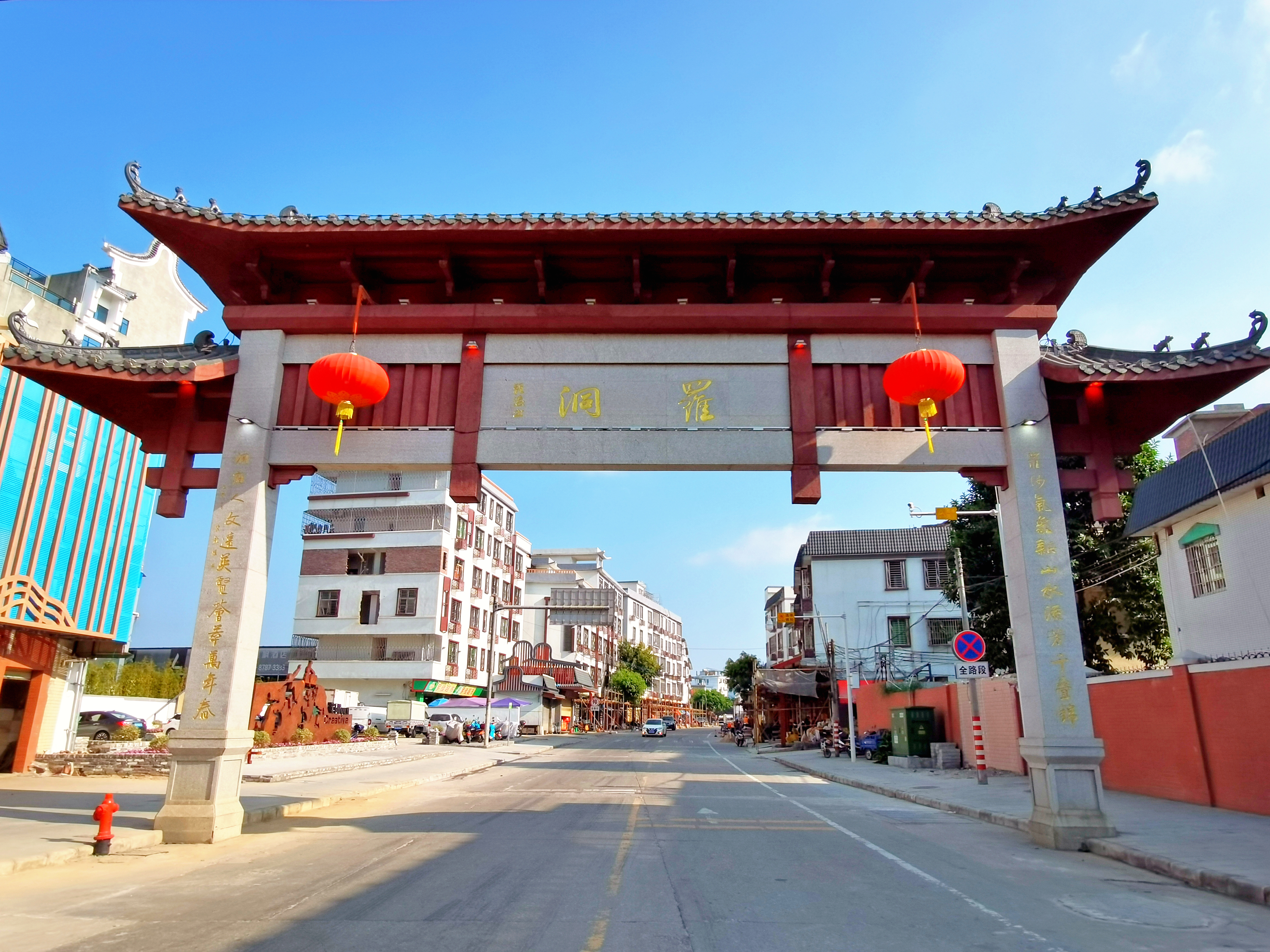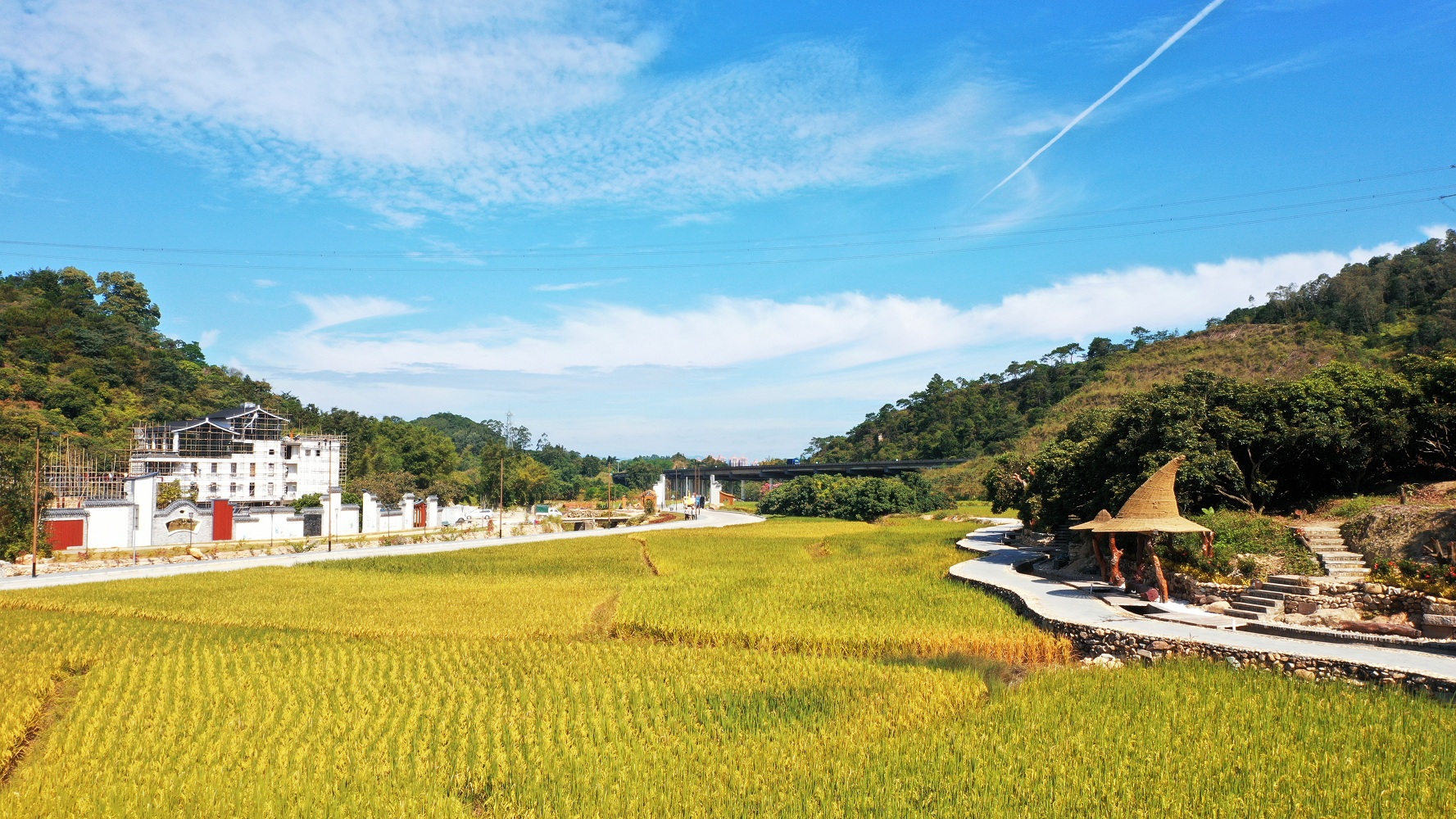Luodong Craftsman Town

Luodong Craftsman Town, situated at the foot of Fenghuang Mountain, south of Jiangpu Subdistrict of Conghua district, covers approximately 32.7 sq km. The town is known for high-quality agricultural products such as seedless persimmons, Citrus tachibana, watercress, and Chinese black olives.
It is also home to a number of historic relics including the Wang Family Ancestral Hall, a memorial to the Luoxi Plague from the 30th year of the reign of Emperor Guangxu in the Qing Dynasty(1644-1911), and Changshan Round House.
Ancestors of Luodong moved here from Shanxi in northwest China and other places around the year 1300 during the reign of Emperor Dade of the Yuan Dynasty (1271-1368). Many villagers here made a living by making bricks and tiles, and then expanded the business lines to wooden products such as chopping blocks, desks, chairs, and stools. Over time, Luodong became known as a "Craftsman Village".
Now, Jiangpu Subdistrict is following a township plan centered on culture and craftsmanship to launch a group of cultural tourism projects such as a Hundred Craftsmen Garden, Guangyue Mansion, Huiyuan Garden, Grandma's Resort, Yueyun Rural Theater, and the Taoyuan School of Chinese Classics.
A group of leading craftsmen and artists, including Zhu Hongzhi (heir of the intangible cultural heritage Qiang People's water mill lacquer art), Huang Qiang (heir of the intangible cultural heritage Qiang People's straw weaving), Peng Deping (nut-carving master), and Yang Yingwen (eaglewood expert), have joined the project.
Special craftsmanship, such as brick carving, wood carving, olive carving and cloisonne enamel, has been introduced to the town to form an eco-system of special industrial chains featuring "intangible cultural heritage and tourism". Local villagers also enjoy higher income thanks to land circulation, shop operation and rural accommodation.

